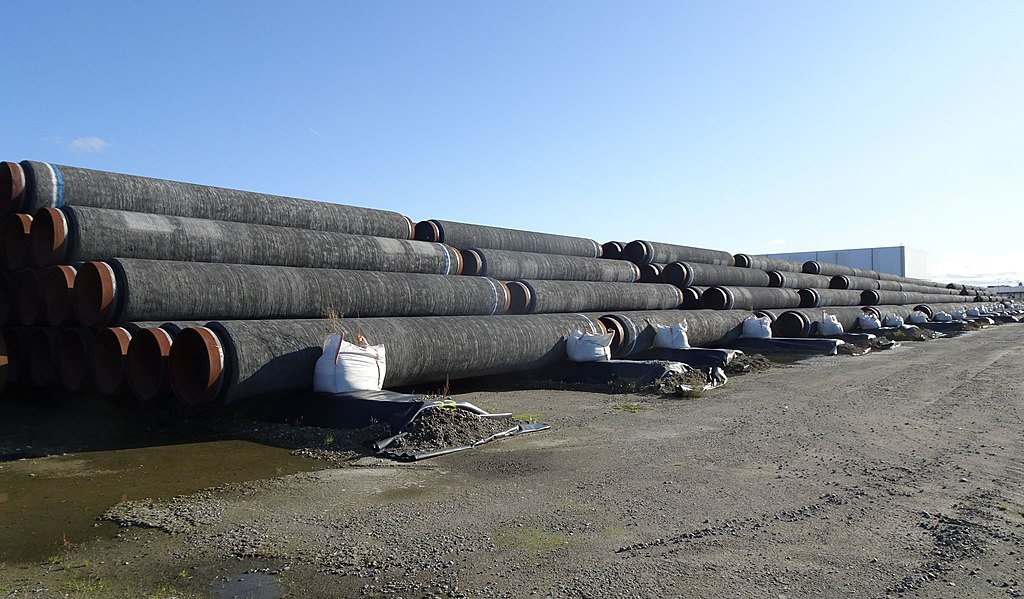Disregarding international law and the sovereignty of Ukraine, Russian troops entered the Ukrainian breakaway regions of Donetsk and Luhansk.
Russian President Vladimir Putin, claimed the soldiers were serving as “peacekeepers,” but as U.S. Ambassador to the United Nations Linda Thomas-Greenfield rightfully said in a speech, “We know what they really are.”
U.S. Contribution to the Crisis
Although no one action, policy, or president is solely responsible for the tragedy we’re seeing today, there is no doubt that some U.S. policies have contributed substantially to the crisis in Ukraine.
For example, from 1992 through 1994, congressional Democrats and then President Bill Clinton put massive pressure on Ukraine to dismantle its nuclear arsenal. In the wake of the fall of the Soviet Union in 1991 and 1992, Ukraine had the third most nuclear arms in the world. Ukrainian officials bowed to international pressure in 1994.
Had Ukraine maintained some of its nuclear arms, it’s unlikely Russia would be invading the country today.
Perhaps the most overlooked factor contributing to Russia’s decision to assault the sovereignty of Ukraine is Democrats’ longstanding commitment to end most, if not all, fossil-fuel development and use in the United States.
Europe, Russian, Fossil Fuels
One of the most important reasons Europe’s biggest and most powerful military forces have refused to intervene in Ukraine is that Europe has become dependent on Russian energy sources. Russia is the primary supplier of the EU’s natural gas, coal, and crude oil.
For more than a decade, officials in Europe have warned of the region’s close economic ties with Russia, but without a reliable alternative source of fossil fuels, many European nations have felt they have no choice but to continue to develop arrangements with Russia.
For instance, Germany, the largest economy in the European Union, recently worked with Russia to build the Nord Stream 2, a 750-mile pipeline designed to distribute natural gas from Russia into Germany.
The Nord Stream 2, which has been built but is awaiting approval from the German government to start operating, is owned by a subsidiary of Gazprom, an energy company controlled by the Russian government.
The Associated Press reports, “Germany meets about a quarter of its energy needs with natural gas, a share that will increase in the coming years as the country switches off its last three nuclear power plants and phases out the use of coal. About half of the natural gas used in Germany comes from Russia.”
Although, German Chancellor Olaf Scholz has halted the pipeline’s certification process, at least for now, due to Russia’s aggression in Ukraine, it is doubtful this action will stand if Russian occupation or annexation becomes permanent.
Why Not the U.S.?
Why has Europe continued to rely on Russia for a significant portion of its energy supply?
The United States is more closely aligned with the values of Europeans, and it produces more coal than Russia and leads the world in natural gas production.
Trump administration officials posed this question to European officials as part of its campaign to expand U.S. energy exports, and the answer was clear: No one in Europe believes the United States will remain a leading exporter of natural gas, coal, and oil in the years to come.
Why? Almost entirely because of Democrats’ insistence that America transition to renewable energy sources like wind and solar.
In an insightful article for the National Interest in 2019, foreign policy expert Nikolas K. Gvosdev, a professor at the U.S. Naval War College, explained Europeans don’t believe the United States can be trusted to continue providing fossil fuels at reasonable prices.
“Any official U.S. offer of an energy alternative depends, essentially, either on Trump’s re-election in 2020 or the unshakeable promise from any of Trump’s Republican primary or Democratic general election competitors to honor Trump’s commitments,” Gvosdev wrote. “In these circumstances, it is not difficult to see why Europeans may hedge their bets.
“Why bet the proverbial farm on a U.S. [liquefied natural gas] supply across the Atlantic if there remains significant doubt as to whether a Democratic successor to Trump—particularly as 2020 candidates endorse the so-called ‘Green New Deal’ with varying degrees of enthusiasm—would continue with such plans?,” wrote Gvosdev.
Biden, Contra Trump and Europe
Time has shown, European officials were right to question the promises of the Trump administration.
Joe Biden, not Donald Trump, won the 2020 election after pledging to make America’s electric grid net-zero by 2035 and to put the United States on a course to phase out nearly all fossil-fuel use and most production, including the production of natural gas and coal, by 2050.
Europe’s dependence on Russian energy severely restricts its ability to stand up to Russia, and Putin knows it.
As long as Europe continues to need Russia’s fossil fuels, it can’t take the steps necessary to avert crises like the one now occurring in Ukraine, because wind and solar energy sources are not reliable enough to operate without fossil fuels backing them up.
Had Democrats embraced the tremendous economic and geopolitical benefits of natural gas, nuclear, oil, and other forms of energy years ago, Russia wouldn’t have the clout in Europe it does today, making it extremely unlikely it could make such an aggressive move against Ukraine.
Justin Haskins (jhaskins@heartland.org) is the director of the Socialism Research Center at The Heartland Institute and the co-author of the New York Times bestselling book The Great Reset: Joe Biden and the Rise of Twenty-First Century Fascism.
